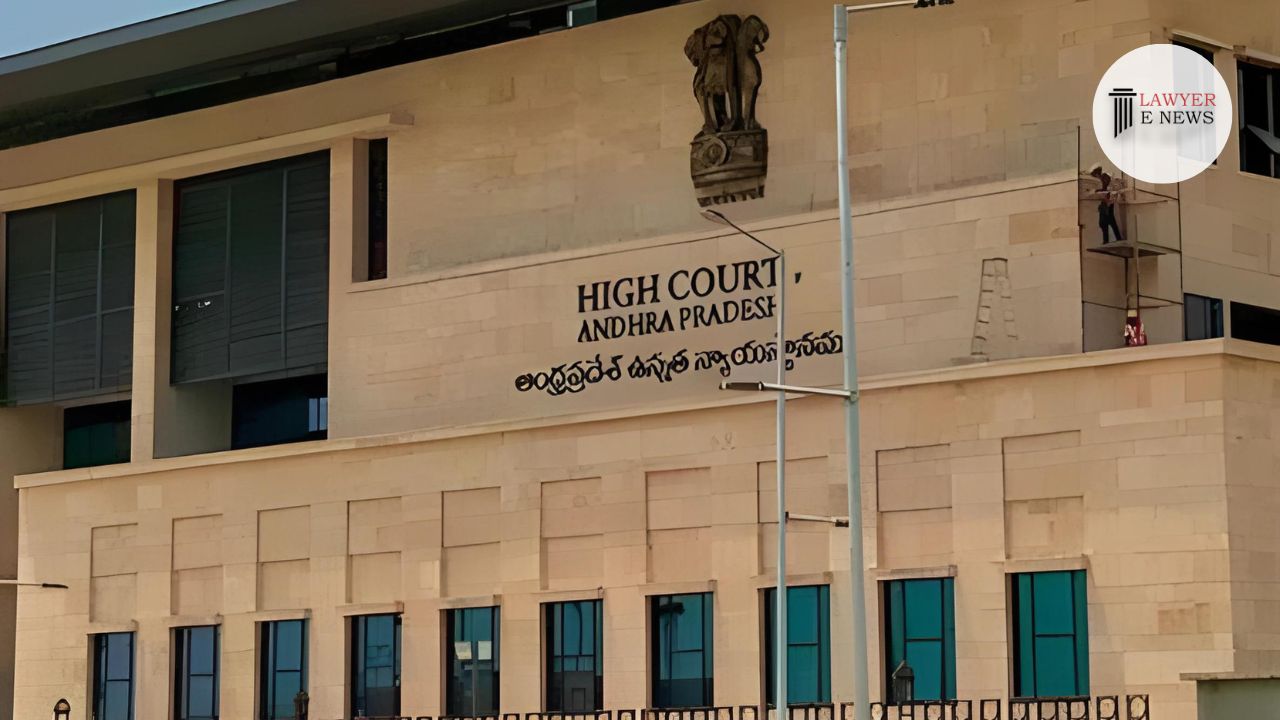-
by Admin
16 February 2026 1:47 PM



High Court’s decision highlights the liberal interpretation of “sufficient cause” under Section 5 of the Limitation Act, 1963, to prioritize substantial justice.
The High Court of Andhra Pradesh, in a significant judgment delivered on June 19, 2024, condoned a delay of 2361 days in filing an appeal by the Trust Association of CBCNC against the judgment in O.S No. 244/2006. The bench, comprising Justices U. Durga Prasad Rao and Kiranmayee Mandava, underscored the necessity of a liberal interpretation of “sufficient cause” under Section 5 of the Limitation Act, 1963, to advance substantial justice over technical procedural adherence.
The petitioner, Trust Association of CBCNC, sought condonation of the extensive delay in appealing the judgment dated February 11, 2015, in O.S No. 244/2006. The petitioner claimed they were unaware of the suit and its outcome until recently, which led to the delay. The respondents, M/s H R R Constructions Private Limited and others, opposed the petition, arguing that the petitioner’s claims of ignorance were false and unfounded.
The court emphasized the principle that “sufficient cause” should be interpreted liberally to advance substantial justice. “The expression ‘sufficient cause’ must receive a liberal construction so as to advance substantial justice,” the bench noted, referring to several landmark Supreme Court judgments that advocate a justice-oriented approach.
The court examined the petitioner’s explanation for the delay, which primarily revolved around their lack of awareness about the suit and its outcome until recently. The respondents argued that the petitioner was well aware of the suit, citing concurrent postings of related cases and common legal representation.
Upon scrutinizing the evidence and arguments, the court found the petitioner’s explanation for the delay to be plausible. It noted that the concurrent posting of cases did not necessarily imply that the petitioner had knowledge of the suit. Furthermore, the use of the same legal counsel by the petitioner and a party in the original suit did not substantiate the claim of collusion.
The bench reiterated the principles for condoning delays, emphasizing the need to prioritize substantial justice over procedural technicalities. It stated, “When substantial justice and technical considerations are pitted against each other, the cause of substantial justice deserves to be preferred.”
Justice U. Durga Prasad Rao remarked, “The liberal construction of ‘sufficient cause’ is paramount in advancing substantial justice. The petitioner’s explanation, though delayed, is plausible and warrants consideration.”
The High Court’s decision to condone the 2361-day delay underscores its dedication to ensuring that justice prevails over procedural technicalities. By allowing the appeal to proceed, the court has reinforced the principle that procedural delays should not impede the administration of justice. This judgment is anticipated to have significant implications for future cases involving substantial procedural delays, advocating for a justice-oriented approach within the Indian legal system.
Date of Decision: 19th June 2024
Trust Association of CBCNC vs. M/s H R R Constructions Private Limited and Others
